Nirupa Roy

Subscribe to read full article
This section is for paid subscribers only. Our subscription is only $37/- for one full year.
You get unlimited access to all paid section and features on the website with this subscription.
Not ready for a full subscription?
You can access this article for $2 , and have it saved to your account for one year.
- Real Name: Kokila Kishorechandra Balsara
- Born: 4 January, 1931 (Valsad, Bombay Presidency, British India)
- Died: 13 October, 2004 (Mumbai, Maharashtra)
- Primary Cinema: Hindi
- Spouse: Kamal Roy
- Children: Yogesh Roy, Kiran Roy
Featuring in scores of films in the course of her career, Nirupa Roy is synonymous with playing mother onscreen over the decades. As the caring, suffering, sacrificing Ma of Hindi cinema, her archetypical character enjoyed an exalted status on screen. Starting off in the Gujarati film Ranakdevi (1946), she made her Hindi film debut the same year with Amar Raj. Playing Hindu goddesses and historical figures in a string of films, she won acclaim for her performance in Bimal Roy’s Do Bigha Zamin (1953). With Munimji (1955) she graduated to playing mother roles, becoming the most popular choice for maternal roles onscreen with a slew of successful films such as Deewaar (1975), Amar Akbar Anthony (1977) and Mard (1985). From the 1970s, she was typecast to play the role of mother to a number of leading actors, including Amitabh Bachchan, Dev Anand, Dharmendra and his son, Sunny Deol, in different films. Of all her many maternal roles, her performance as the mother torn between her sons in Deewaar perhaps remains most memorable.
She was born Kokila Kishorechandra Balsara on 4 January, 1931 in Valsad, Bombay Presidency. Married at age 15, she moved to Bombay along with her husband Kamal Roy, to build a life. Responding to an advertisement for actors in a Gujarati paper, she debuted in films under the name Nirupa Roy with the Gujarati film Ranakdevi (1946). Her debut in Hindi films came the same year with Amar Raj (1946). She won attention two years later for her role as the housewife who succeeds in winning back her husband in Gunsundari (1948). Two years later, she hit the big time with Jayant Desai’s Har Har Mahadev (1950). Essaying Goddess Parvati in the film with Trilok Kapoor playing Lord Shiva, she became immensely popular with audiences, to the extent that the public began treating her as an actual goddess, lining up to seek her blessings. '
Over the next few years, she went on to play a variety of religious and historical characters such as Sita, Lakshmi, and Meera Bai. However, she won acclaim for Bimal Roy’s Do Bigha Zamin (1953), in which she was cast opposite Balraj Sahni, playing a poor village housewife. She went on to feature in several films with actor Bharat Bhushan, such as Samrat Chandragupt (1958) and Rani Rupmati (1959).
Nirupa Roy segued into playing the most defining role of her career – mother. It was probably partly boosted by her goddess image onscreen. She first played mother in 1955 in the film Munimji. Ironically, she acted as Dev Anand's mother, even though she was around 8 years younger than him. It was followed by innumerable commercial films which featured her in maternal roles. These included the Dilip Kumar starrer Ram Aur Shyam (1967), director Yash Chopra’s iconic Deewar (1975) in which she played a widow torn between her elder son Vijay, who is a criminal, and her younger son Ravi, a police official. She played mother to Amitabh Bachchan in several films including Amar Akbar Anthony (1977), Mard (1985), and Lal Badshah (1999). Such was her impact amongst film-goers that many perceived her to be Bachchan’s real life mother.
Other films she is known for include Suhaag (1979), Jaanwar (1983), Betaab (1983), Sarfarosh (1985), Jai Shiv Shankar (1990), and Jahan Tum Le Chalo (1999).
Nirupa Roy won several honours in the course of her long and successful career. She earned the Filmfare Best Supporting Actress award respectively for Munimji (1955), Chhaya (1961), and Shehnai (1964). She was also nominated for her memorable role in Deewaar. She was honoured with the Filmfare Lifetime Achievement Award in 2004.
Nirupa Roy died of cardiac arrest on 13 October, 2004 in Mumbai. She was 73.
-
Filmography (246)
SortRole
-

Jahan Tum Le Chalo 1999
-

Humshakal 1992
-
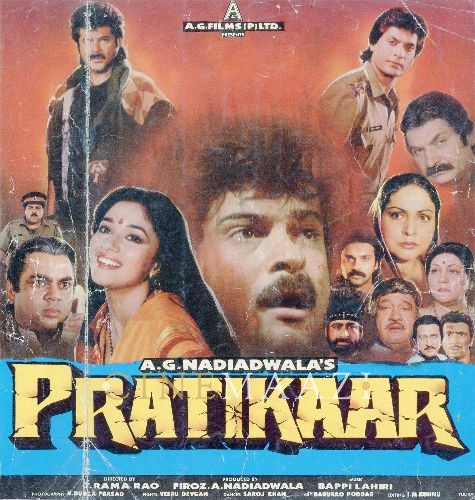
Pratikar 1991
-

Kaarnaama 1990
-
Karnama 1990
-
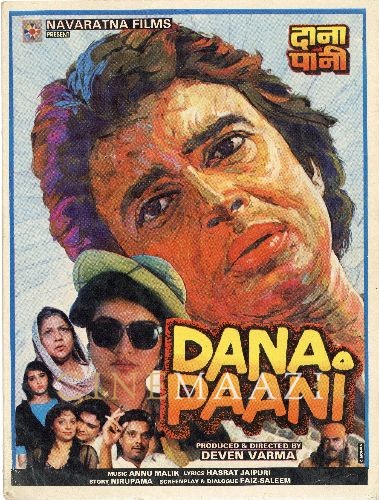
Dana Paani 1989
-
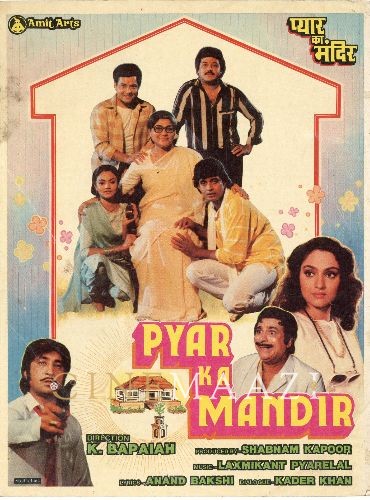
Pyar Ka Mandir 1988
-

Dharam Shatru 1988
-
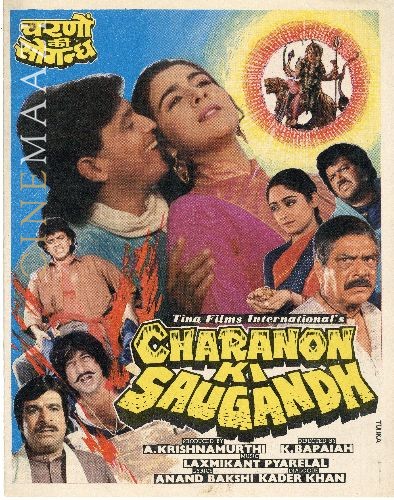
Charanon Ki Saugandh 1988
-
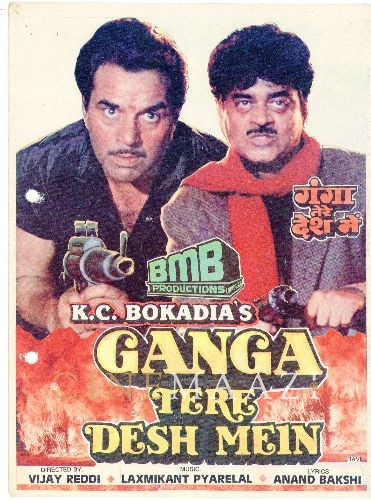
Ganga Tere Desh Mein 1988
-










.jpg)



